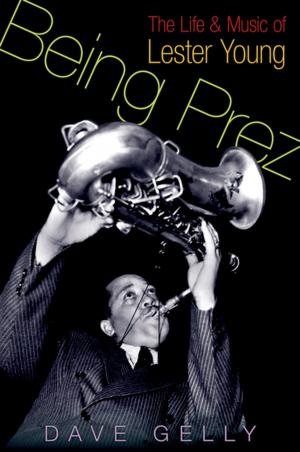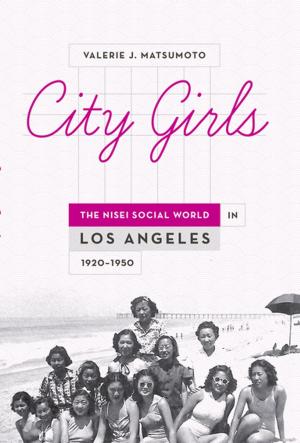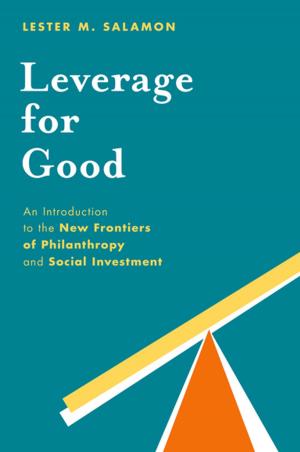Contesting Castro
The United States and the Triumph of the Cuban Revolution
Nonfiction, Social & Cultural Studies, Political Science, International, International Relations, History, Americas, United States, 20th Century| Author: | Thomas G. Paterson | ISBN: | 9780190282837 |
| Publisher: | Oxford University Press | Publication: | October 12, 1995 |
| Imprint: | Oxford University Press | Language: | English |
| Author: | Thomas G. Paterson |
| ISBN: | 9780190282837 |
| Publisher: | Oxford University Press |
| Publication: | October 12, 1995 |
| Imprint: | Oxford University Press |
| Language: | English |
Today they stand as enemies, but in the 1950s, few countries were as closely intertwined as Cuba and the United States. Thousands of Americans (including Ernest Hemingway and Errol Flynn) lived on the island, and, in the United States, dancehalls swayed to the mambo beat. The strong-arm Batista regime depended on Washington's support, and it invited American gangsters like Meyer Lansky to build fancy casinos for U.S. tourists. Major league scouts searched for Cuban talent: The New York Giants even offered a contract to a young pitcher named Fidel Castro. In 1955, Castro did come to the United States, but not for baseball: He toured the country to raise money for a revolution. Thomas Paterson tells the fascinating story of Castro's insurrection, from that early fund-raising trip to Batista's fall and the flowering of the Cuban Revolution that has bedeviled the United States for more than three decades. With evocative prose and a swift-moving narrative, Paterson recreates the love-hate relationship between the two nations, then traces the intrigue of the insurgency, the unfolding revolution, and the sources of the Bay of Pigs invasion, CIA assassination plots, and the missile crisis. The drama ranges from the casino blackjack tables to Miami streets; from the Eisenhower and Kennedy White Houses to the crowded deck of the Granma, the frail boat that carried the Fidelistas to Cuba from Mexico; from Batista's fortified palace to mountain hideouts where Rau'l Castro held American hostages. Drawing upon impressive international research, including declassified CIA documents and interviews, Paterson reveals how Washington, fixed on the issue of Communism, failed to grasp the widespread disaffection from Batista. The Eisenhower administration alienated Cubans by supplying arms to a hated regime, by sustaining Cuba's economic dependence, and by conspicuously backing Batista. As Batista self-destructed, U.S. officials launched third-force conspiracies in a vain attempt to block Castro's victory. By the time the defiant revolutionary leader entered Havana in early 1959, the foundation of the long, bitter hostility between Cuba and the United States had been firmly laid. Since the end of the Cold War, the futures of Communist Cuba and Fidel Castro have become clouded. Paterson's gripping and timely account explores the origins of America's troubled relationship with its island neighbor, explains what went wrong and how the United States "let this one get away," and suggests paths to the future as the Clinton administration inches toward less hostile relations with a changing Cuba.
Today they stand as enemies, but in the 1950s, few countries were as closely intertwined as Cuba and the United States. Thousands of Americans (including Ernest Hemingway and Errol Flynn) lived on the island, and, in the United States, dancehalls swayed to the mambo beat. The strong-arm Batista regime depended on Washington's support, and it invited American gangsters like Meyer Lansky to build fancy casinos for U.S. tourists. Major league scouts searched for Cuban talent: The New York Giants even offered a contract to a young pitcher named Fidel Castro. In 1955, Castro did come to the United States, but not for baseball: He toured the country to raise money for a revolution. Thomas Paterson tells the fascinating story of Castro's insurrection, from that early fund-raising trip to Batista's fall and the flowering of the Cuban Revolution that has bedeviled the United States for more than three decades. With evocative prose and a swift-moving narrative, Paterson recreates the love-hate relationship between the two nations, then traces the intrigue of the insurgency, the unfolding revolution, and the sources of the Bay of Pigs invasion, CIA assassination plots, and the missile crisis. The drama ranges from the casino blackjack tables to Miami streets; from the Eisenhower and Kennedy White Houses to the crowded deck of the Granma, the frail boat that carried the Fidelistas to Cuba from Mexico; from Batista's fortified palace to mountain hideouts where Rau'l Castro held American hostages. Drawing upon impressive international research, including declassified CIA documents and interviews, Paterson reveals how Washington, fixed on the issue of Communism, failed to grasp the widespread disaffection from Batista. The Eisenhower administration alienated Cubans by supplying arms to a hated regime, by sustaining Cuba's economic dependence, and by conspicuously backing Batista. As Batista self-destructed, U.S. officials launched third-force conspiracies in a vain attempt to block Castro's victory. By the time the defiant revolutionary leader entered Havana in early 1959, the foundation of the long, bitter hostility between Cuba and the United States had been firmly laid. Since the end of the Cold War, the futures of Communist Cuba and Fidel Castro have become clouded. Paterson's gripping and timely account explores the origins of America's troubled relationship with its island neighbor, explains what went wrong and how the United States "let this one get away," and suggests paths to the future as the Clinton administration inches toward less hostile relations with a changing Cuba.















